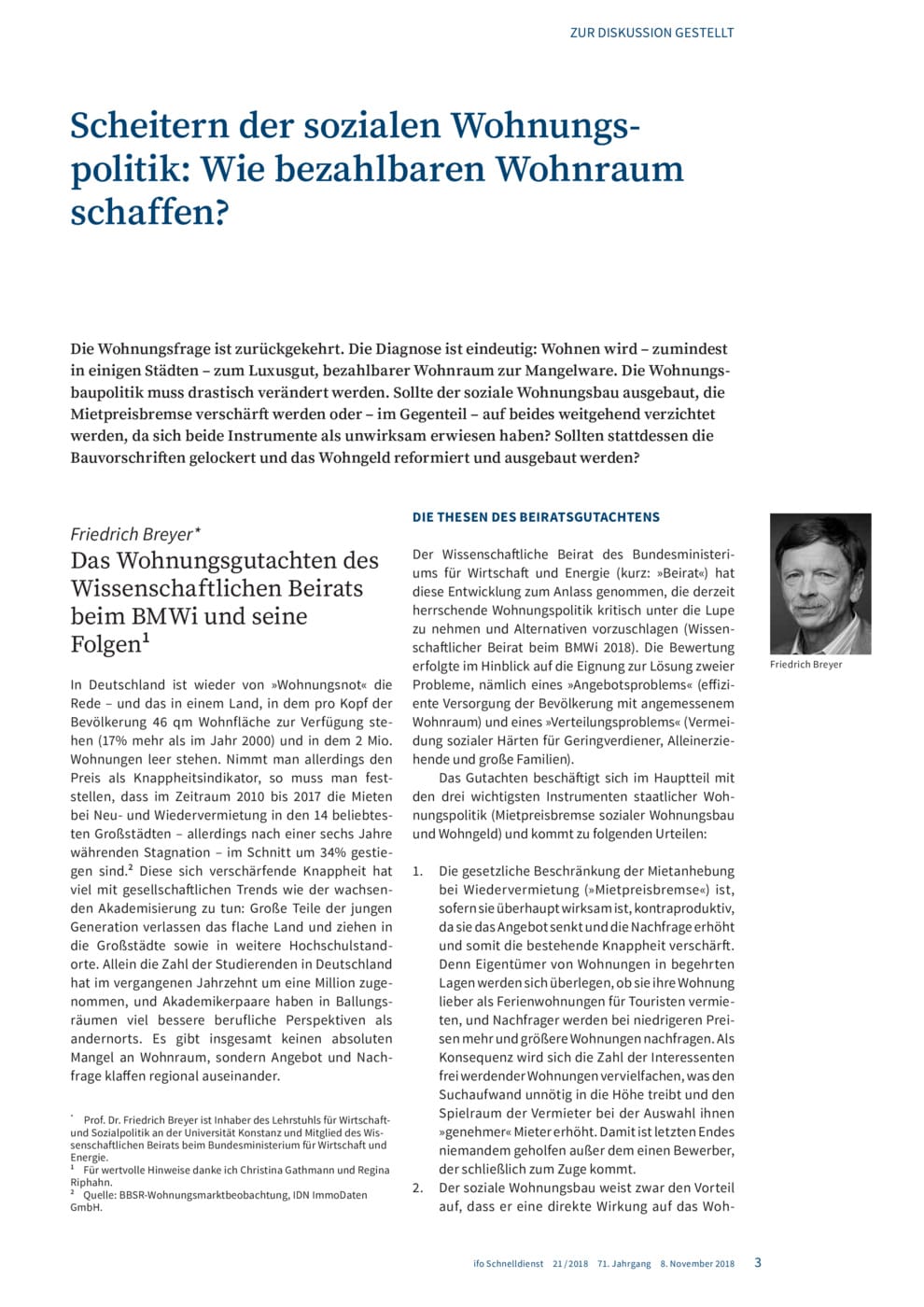Failure of social housing policy: How to create affordable housing?
ifo Institut, München, 2018
ifo Schnelldienst, 2018, 71, Nr. 21, 03-30

Living is becoming - at least in some cities - a luxury good, while affordable living space is turning into a scarce commodity. Housing policy must be drastically changed. Should social housing be expanded, the rent brake tightened or - on the contrary - both be largely abandoned? Should building regulations be relaxed and housing subsidies reformed and expanded instead? Friedrich Breyer, University of Constance, presents the report of the Scientific Advisory Board of the Federal Ministry of Economics and Energy on current housing policy. According to the report, the measures recently adopted are not suitable for eliminating the diagnosed "housing shortage" in a sustainable and social way. It would make more sense to allocate more building land in conurbations and to provide housing subsidies for households lacking the purchasing power to enable them to afford a flat at market rent. Nicole Hoffmeister-Kraut, Minister for Economic Affairs, Labour and Housing of the State of Baden-Württemberg, summarises the housing policy of the State of Baden-Württemberg, which among other things consists of the promotion of social housing and of freely-financed housing construction. Matthias Wrede, University of Erlangen-Nuremberg, sees a social housing policy as securing a basic supply of housing, using space more efficiently and reducing transactions. According to Harald Simons, empirica, high rents affect less than half of the regional housing markets in Germany. High rents in one location are a result of low rents in other locations and vice versa. This is due to "swarm behaviour." The gap between swarm towns and bleeding regions could be narrowed if fewer young people were to migrate to swarm towns. According to Lars Vandrei, ifo Dresden branch, the rent brake does serve to reduce price increases, at least in the short and medium term. However, this does not create affordable housing, but merely makes existing housing more affordable for some tenants. Without an actual increase in supply, the scheme is primarily likely to benefit relatively high earners. Theresia Theurl, University of Münster, underlines the importance of housing cooperatives for the procurement of affordable housing. Ralph Henger, Institut der deutschen Wirtschaft, sees the solution to the housing shortage problem in the expansion of the offer and the right mix of accompanying measures. Above all, the cities and municipalities in the conurbations would have to change their policies. The central problem is the lack of land available for development in growing cities and municipalities. Konstantin Kholodilin, DIW, Berlin, and Sebastian Kohl, Max Planck Institute for the Study of Societies, Cologne, show that rental regulations do not necessarily have to lead to the end of new construction activity; and that a deregulation of the rental market does not necessarily stimulate new construction activity.